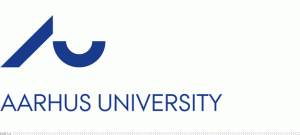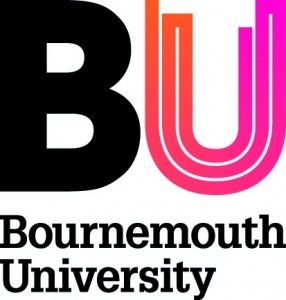 ChinaAccess4EU project is funded by FP7, aiming to increase the awareness and dissemination in the EU of access opportunities for European researchers and research organisations in Chinese national research and innovation programmes. There is a series of newly published calls under the themes Strategic Public Policy Research; Collaborative Research; and Health Care and Promotion.
ChinaAccess4EU project is funded by FP7, aiming to increase the awareness and dissemination in the EU of access opportunities for European researchers and research organisations in Chinese national research and innovation programmes. There is a series of newly published calls under the themes Strategic Public Policy Research; Collaborative Research; and Health Care and Promotion.
/ Full archive
AHRC survey on International Collaboration
 The AHRC is currently carrying out a survey to gather vital information about International collaborations in order gain a greater understanding. The 10 minute survey provides an opportunity to inform the AHRC of your experience in International collaboration and feed into the on-going development of the AHRC’s international activities- including FP7 participation. The deadline for submission is 10th July 2011.
The AHRC is currently carrying out a survey to gather vital information about International collaborations in order gain a greater understanding. The 10 minute survey provides an opportunity to inform the AHRC of your experience in International collaboration and feed into the on-going development of the AHRC’s international activities- including FP7 participation. The deadline for submission is 10th July 2011.
King’s and Bristol join open IP movement
 KCL and the University of Bristol have joined the University of Glasgow in making their intellectual property available to UK businesses under an “easy access” scheme.
KCL and the University of Bristol have joined the University of Glasgow in making their intellectual property available to UK businesses under an “easy access” scheme.
The Easy Access Innovation Partnership launched by the University of Glasgow in last year enables universities to release IP that might benefit from early development to companies for free, using simplified agreements.
In March 2011, King’s, Glasgow and Bristol received an £80,000 award from the Intellectual Property Office to fund a collaborative project to create a “consortium of open-innovation universities and collectively promote free IP opportunities to industry”.
Call for bids: UK-India Education and Research Initiative Phase Two
 The first call for bids for Phase Two of UKIERI has been launched and has confirmed funding from the UK and Indian Governments of £5 million annually over the next three years.
The first call for bids for Phase Two of UKIERI has been launched and has confirmed funding from the UK and Indian Governments of £5 million annually over the next three years.
Phase two of the programme concentrates on four key areas: leadership from school to universities; innovation partnerships between higher and further education institutions in UK and India; skills development; and the mobility of students and qualifications. The first round closes on 5 August 2011.
Catalogue of EU Funded Projects in Environmental Research 2007-11 published
 This catalogue presents information on 337 projects selected for funding under the ‘Environment (including climate change)’ theme of FP7.
This catalogue presents information on 337 projects selected for funding under the ‘Environment (including climate change)’ theme of FP7.
EPSRC Visiting Researcher Grants
 These grants enable research scientists and engineers of acknowledged standing to visit a UK research organisation. Grants are for a period of up to 12 months and cover salary costs, travel and subsistence. There are no closing dates – you can apply at any time and it is the host UK researcher who applies for funding, not the visiting researcher.
These grants enable research scientists and engineers of acknowledged standing to visit a UK research organisation. Grants are for a period of up to 12 months and cover salary costs, travel and subsistence. There are no closing dates – you can apply at any time and it is the host UK researcher who applies for funding, not the visiting researcher.
First BU Research Blog Poll Results
Are journal impact factors a good indicator of quality?
Following the launch of the first BU Research Blog Poll, we received 28 responses to the above question which were split as follows:
| Yes – always | 2 |
| Yes – but in STEM disciplines only | 1 |
| Sometimes | 22 |
| No, never | 2 |
The majority of responses indicate that there may be some doubt about the usefulness of impact factors when used as a proxy for journal quality. This is perhaps because there are a number of factors that could affect a journal’s perceived quality that cannot be demonstrated through metrics alone. Also, the use of journal metrics like impact factors are not necessarily perceived as being robust enough yet to give an accurate indication of journal or article quality, hence HEFCE’s decision not to rely solely on metrics in the Research Excellence Framework (REF).
To continue the debate on this, do feel free to post a reply below, or suggest a topic for a future poll by responding to Julie’s original post. For more information about journal impact factors, have a look at the previous blog post on this subject.
 In the meantime, why not get involved in the current poll which can be accessed from the top right-hand side of the blog homepage – it will take just seconds to complete and will help shape the support offered to BU academics in the future.
In the meantime, why not get involved in the current poll which can be accessed from the top right-hand side of the blog homepage – it will take just seconds to complete and will help shape the support offered to BU academics in the future.
ESRC Future research leaders scheme open for outlines
 The scheme will support outstanding early career researchers to carry out excellent research and to develop all aspects of their research and knowledge exchange skills. Awards will last a maximum of three years and will be worth up to £215,000 each. Deadline is 15.09.11
The scheme will support outstanding early career researchers to carry out excellent research and to develop all aspects of their research and knowledge exchange skills. Awards will last a maximum of three years and will be worth up to £215,000 each. Deadline is 15.09.11
Graphene EU conference proceedings published
 The EC has published the proceedings of the conference it organised on the potential for Graphene (a new material, based on common carbon, that presents surprising electrical, optical and mechanical properties, due to its two-dimensional structure), which it held earlier in the year. The aim of the event was to consider how to best exploit the industrial potential of Graphene.
The EC has published the proceedings of the conference it organised on the potential for Graphene (a new material, based on common carbon, that presents surprising electrical, optical and mechanical properties, due to its two-dimensional structure), which it held earlier in the year. The aim of the event was to consider how to best exploit the industrial potential of Graphene.
European focused funding available
 The Central Europe Programme offers funding for projects on the facilitating innovation across Central Europe; improving accessibility to, and within, Central Europe; using our environment responsibly; enhancing competitiveness and attractiveness of cities and regions. The budget for this call is at least €22.5 million and the recommended funding amount is €1m to €2.5m per project. Closing date: 14 October 2011
The Central Europe Programme offers funding for projects on the facilitating innovation across Central Europe; improving accessibility to, and within, Central Europe; using our environment responsibly; enhancing competitiveness and attractiveness of cities and regions. The budget for this call is at least €22.5 million and the recommended funding amount is €1m to €2.5m per project. Closing date: 14 October 2011
EU Social Sciences and Humanities funding available
 European instrument for democracy and human rights – enhancing respect for human rights and fundamental freedoms where they are most at risk and supporting human rights defenders: proposals should explore the enhancment, respect for human rights and fundamental freedoms in countries and situations where they are most at risk and where human rights defenders and civil society organisations work under severe constraints and are most under pressure. Grants are worth between €150,000 and €2m. Closing date: 1 August 2011.
European instrument for democracy and human rights – enhancing respect for human rights and fundamental freedoms where they are most at risk and supporting human rights defenders: proposals should explore the enhancment, respect for human rights and fundamental freedoms in countries and situations where they are most at risk and where human rights defenders and civil society organisations work under severe constraints and are most under pressure. Grants are worth between €150,000 and €2m. Closing date: 1 August 2011.
European instrument for democracy and human rights restricted call for proposals: proposals should explore contributions to the development and consolidation of democracy and the rule of law and respect for all human rights and fundamental freedoms. Grants are worth between €200,000 and €1.5m. Closing date: 1 August 2011.
European Policy Network on the Education of Children and Young People with a Migrant Background: proposals should address the issues raised by the November 2009 Council conclusions on the education of children from a migrant background and stimulate high-level cooperation between Member State policy makers responsible for social inclusion through education, including cooperation between authorities in the countries of origin and host countries. The network should actively stimulate transnational cooperation primarily at governmental level, but also at the level of experts and practitioners. Grants are worth €500,000. Closing date: 14 October 2011.
Aarhus researchers to map Danish humanities
 The non-profit Velux Foundation has awarded €764,000 to a research group based at to map humanities in Denmark, the university said on 10 June. The researchers will study how the humanities are “bound together” at Danish universities as well as investigate how the humanities disciplines influence and are influenced by social sciences and natural sciences.
The non-profit Velux Foundation has awarded €764,000 to a research group based at to map humanities in Denmark, the university said on 10 June. The researchers will study how the humanities are “bound together” at Danish universities as well as investigate how the humanities disciplines influence and are influenced by social sciences and natural sciences.
Visual Cognition at BU?
It depends how you see it process it visually!
 On 8th June, several cars arrived in convoy from Southampton University carrying approximately 25 members of the Centre for Visual Cognition. Their aim was to meet with their colleagues in the Visual Cognition group in Psychology at Bournemouth University along with other colleagues from DEC, the Media School and HSC who also have an interest in how we process visual information.
On 8th June, several cars arrived in convoy from Southampton University carrying approximately 25 members of the Centre for Visual Cognition. Their aim was to meet with their colleagues in the Visual Cognition group in Psychology at Bournemouth University along with other colleagues from DEC, the Media School and HSC who also have an interest in how we process visual information.
 The research poster event was designed to provide an informal forum to ‘talk research’ with a view to forging longer-term research collaborations. Professor Simon Liversedge, the Head of the Centre for Visual Cognition at Southampton, said, “It is great to have the opportunity to come and visit the research team here and to have the opportunity to discuss our common research interests in such a nice location.” Topics for discussion ranged from visual search in medical research, visual processing in reading, autism, face recognition and much more.
The research poster event was designed to provide an informal forum to ‘talk research’ with a view to forging longer-term research collaborations. Professor Simon Liversedge, the Head of the Centre for Visual Cognition at Southampton, said, “It is great to have the opportunity to come and visit the research team here and to have the opportunity to discuss our common research interests in such a nice location.” Topics for discussion ranged from visual search in medical research, visual processing in reading, autism, face recognition and much more.
A big thanks must go to Dr Julie Kirkby who organised the afternoon for us and we hope that this is going to be the first of a number of meetings.
If you missed this meeting and think that you may have interests in common with this group please email Julie and she will add you to our contacts list for when we next meet.
Sine McDougall
Cultural and Social Change research theme discussions
A number of colleagues from four Schools (AS, HSC, MS, ST) met on Monday 27th June to consider whether a meaningful theme, complementary to those already in development, could be defined within the broad territory of the social sciences and humanities. We had a useful discussion and the phrase ‘Cultural and social change’ was considered an appropriate theme title. The meeting decided that to produce a full prospectus for this theme we would invite any interested colleagues to contribute further inputs to it – these could be thoughts about the overall theme, or suggestions for specific elements to be within it. If you’d like to do so, please go to the latest ‘Cultural and Social Change’ post listed under the Research Themes tab – do not reply to this post.
Given the need to finalise a statement about the theme within the next month, we agreed that blog-based conversations and inputs could run until 15 July, at which point a smaller group would hopefully collate them into a generally acceptable statement which would establish the theme across at least the four Schools so far involved.
Barry Richards
Cultural and Social Change (Barry Richards and Rosie Read)
A number of colleagues from four Schools (AS, HSC, MS, ST) met on Monday 27th June to consider whether a meaningful theme, complementary to those already in development, could be defined within the broad territory of the social sciences and humanities. We had a useful discussion around the following points:
- The themes are being defined as a way of presenting BU’s research externally, but may have internal effects, in promoting collaborations, inflecting research identities, etc.
- There will inevitably be major areas of overlap between several themes, given that all are broadly defined.
- Dialogue between themes in the development phase would help to clarify boundaries.
- The themes of ‘Creative & digital economies’ and ‘Leisure and tourism’, and also ‘Health and well-being’, were ones where overlaps and interfaces with a ‘culture&society’ one would be most obvious.
- Contributions to the debate about how to define a ‘culture&society’ theme had suggested that ‘history’ and ‘welfare’ were two important parameters, amongst others.
- In the discussion we were very aware of the need to introduce some limits to the theme, and of the possibility therefore that some ‘potential ‘members’ might not fit into the final definition of it.
- There was also a view that we should try to include both social scientific and more humanities-based researchers.
The proposal that the phrase ‘Cultural and social change’ might be an appropriate theme title was favourably received. While still very broad (no doubt in some contexts unhelpfully so), it puts implicit emphasis on the historical context (‘change’ being a process in time), which is important for those studying contemporary life as well as for those actually doing historical research. It would encompass researchers of different philosophical orientation, and is hospitable to agendas of social engagement (such as the social welfare vision from HSC, the commentaries on democratic culture from MS, contributions to media and cultural policy/production from MS and ST, and the perspectives on various social issues from AS). Whether the theme title can be modified to reflect explicitly this principle of engagement for social betterment remains to be seen.
The meeting decided that in order to produce a full prospectus for this theme we would invite any interested colleagues to contribute further inputs to it – building on or otherwise responding to the above – via the Research blog. These could be thoughts about the overall theme, or suggestions for specific elements to be within it. If you’d like to do so, please indicate which heading of the theme template you are addressing (summary, scope in/out, ‘big societal questions’ which the theme addresses, link to RC priorities, interlinks with other BU themes). Given the need to finalise a statement about the theme within the next month, we agreed that blog-based conversations and inputs could run until 15 July, at which point a smaller group would hopefully collate them into a generally acceptable statement which would establish the theme across at least the four Schools so far involved. Myself and Rosie Read are happy to play a part in that group; if anyone else is interested please let us know.
You can access the latest version of the scoping document for the Cultural & Society theme here: Cultural and Social Change – July 2011
In the meantime, to help consolidate the responses so far around this theme, please note that the previous two discussion threads entitled ‘Culture and Society (Rosie Read)‘ and ‘Culture and Society (Barry Richards)‘ are now closed and all future responses related to this theme should be made to this post using the link below. Thank you.
Barry Richards
Culture and Societal Change: Methodologies
I would concur with the idea raised at our recent meeting that a defining feature of this theme could encompass some specific forms of methodology underpinning epistemology relevant to the social sciences and humanities. I would suggest that ethnography and its variants are a key form of methodology commonly used by a number of interested members of our emerging group; in addition to case studies, narrative and oral history methodologies. I’m sure there would be a number of other methodologies that colleagues might wish to suggest as well, including quantitative methods commonly used in the social sciences, for example. Although precisely how to define these as distinctive to this theme, as opposed to others, may be more of a challenge. Perhaps here the ‘naturalistic’ social context of any epistemological undertaking, as opposed to the more ‘controlled’ positivistic context might be one way forward.
Sara Crabtree
The Research Development Unit welcomes our new team member, taking over the RPRS
 The RDU are delighted to introduce Caroline O’Kane as our new member of the team!
The RDU are delighted to introduce Caroline O’Kane as our new member of the team!
“When I’m up and running I’ll be looking after the Research Peer Review Service. At the minute you can find me in Melbury House but I will be moving to Talbot Campus before too long.
I may be new to BU but I’m not new to proposal development and bidding. I’ve worked in international development for 13 years, where I was heavily involved in the bidding process from initial concept to developing and submitting funding applications and then to managing resulting projects.
I’m not new to the area either – myself, husband (1), children (3) and chickens (2) live just down the road in Parkstone.
Over the next couple of weeks I’m looking forward to getting to grips with the RPRS. If you’re any way involved in funding applications then I’ll be introducing myself to you soon.
You can contact me on extension 61356, on Mondays, Wednesdays and Thursday mornings”
EU audiovisual funding available
 The 2012 Media Mundus call for proposals has been launched. The aims of the programme are to increase the competitiveness of the European audiovisual industry, to enable Europe to play its cultural and political role in the world more effectively and to increase consumer choice and cultural diversity.
The 2012 Media Mundus call for proposals has been launched. The aims of the programme are to increase the competitiveness of the European audiovisual industry, to enable Europe to play its cultural and political role in the world more effectively and to increase consumer choice and cultural diversity.
The programme will seek to improve access to third-country markets and to build trust and long-term working relationships. The MEDIA Mundus programme supports cooperation projects between European professionals and professionals from third countries, to the mutual benefit of the European audiovisual sector and the one of third countries.
Deadline: 23 September 2011











 REF Code of Practice consultation is open!
REF Code of Practice consultation is open! BU Leads AI-Driven Work Package in EU Horizon SUSHEAS Project
BU Leads AI-Driven Work Package in EU Horizon SUSHEAS Project Evidence Synthesis Centre open at Kathmandu University
Evidence Synthesis Centre open at Kathmandu University Expand Your Impact: Collaboration and Networking Workshops for Researchers
Expand Your Impact: Collaboration and Networking Workshops for Researchers ECR Funding Open Call: Research Culture & Community Grant – Apply now
ECR Funding Open Call: Research Culture & Community Grant – Apply now ECR Funding Open Call: Research Culture & Community Grant – Application Deadline Friday 12 December
ECR Funding Open Call: Research Culture & Community Grant – Application Deadline Friday 12 December MSCA Postdoctoral Fellowships 2025 Call
MSCA Postdoctoral Fellowships 2025 Call ERC Advanced Grant 2025 Webinar
ERC Advanced Grant 2025 Webinar Update on UKRO services
Update on UKRO services European research project exploring use of ‘virtual twins’ to better manage metabolic associated fatty liver disease
European research project exploring use of ‘virtual twins’ to better manage metabolic associated fatty liver disease